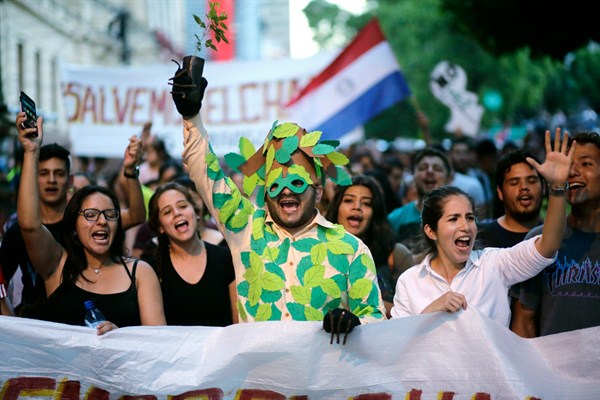Paraguay’s main opposition party recently introduced a bill offering conscription-age youth an alternative to mandatory military service: replanting trees in depleted forests. The reforestation proposal highlights the seriousness of environmental degradation in Paraguay, mainly driven by the clearing of forests for agriculture, which has sustained one of Latin America’s highest economic growth rates. In an interview with WPR, Joel E. Correia, an assistant professor of Latin American studies and core faculty member in the University of Florida’s Tropical Conservation and Development Program, discusses deforestation in Paraguay and its disproportionate impact on the country’s indigenous peoples.
World Politics Review: How serious is the degradation of forests in Paraguay, and to what extent has the country been able to address this issue through conservation policies?
Joel E. Correia: Paraguay has an extremely serious problem with deforestation, mainly driven by agricultural practices like soybean production and cattle ranching. Numerous studies by academics, NGOs and international development agencies have utilized geospatial analysis and remotely sensed data to determine the extent of deforestation across the country. In southeastern Paraguay, the Interior-Atlantic Forest once covered 9 million hectares—more than 22 million acres—but by the mid-2000s, 93 percent of it had been cleared for agricultural purposes.

